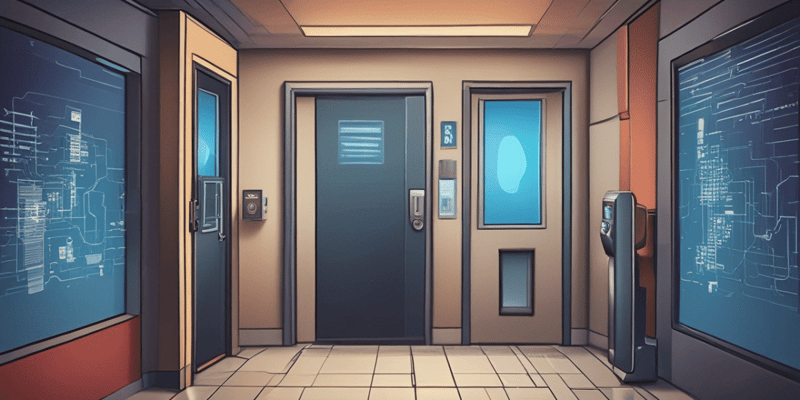15 Questions
What property does a logical system have if every formula that can be deduced in the system is a tautology?
Soundness
In a logical calculus, what does it mean if a formula φ: ⊢ φ always implies ⊨ φ?
The system is sound
What happens when a logical system is not sound?
It can derive formulas that are not always true.
Which of the following logical calculi for propositional logic is not sound?
The calculus of fuzzy logic
Why is it important for a logical calculus to be sound?
To avoid deriving non-true formulas
What issue arises when a logical calculus is not sufficient to prove or disprove whether a proposition is a tautology?
Incompleteness arises
What is the key reason completeness is relevant in a logical calculus?
It ensures every tautology can be proved within the system
Which attribute distinguishes a proposition as a tautology?
Its negation is satisfiable
Why does the algorithm in propositional logic eventually terminate despite potentially numerous combinations?
Because it reaches a finite number of steps
What is the primary distinction between satisfiability and tautology in propositional logic?
A tautology's negation is non-satisfiable
Which problem is classified as one of the most famous NP-complete problems in complexity theory?
SAT problem
What is the relationship between the SAT problem and the P = NP-problem?
P = NP-problem is related to efficient algorithms for NP-complete problems
Why are all known algorithms for NP-complete problems considered inefficient?
Because they have an exponential runtime growth
In which area of mathematics and logic can completeness not be achieved?
Predicate logic with basic arithmetic
How are propositions derived using the rules in a logical system classified?
As tautologies under all interpretations
Study Notes
Completeness of a Logical Calculus
- A logical calculus is (semantically) complete if every tautology can be proved within the system.
- A calculus is complete if the following holds for every formula φ: ⊨ φ always implies ⊢ φ.
Resolution Rule for Propositional Logic
- The resolution rule terminates (i.e., the while loop is never infinite) because there can only be 2^n different clauses.
- The algorithm stops when each of these clauses is combined with every other clause to form a resolvent.
Completeness of Logical Calculus for Propositional Logic
- The following logical calculi for propositional logic are complete:
- The calculus of truth tables
- The Hilbert calculus with axioms and laws of propositional logic
- The resolution rule
- This theorem only holds for propositional logic and not for more complex areas of mathematics and logic.
Satisfiability Problem (SAT)
- The satisfiability problem (SAT) is a problem where the runtime of all known algorithms grows exponentially with the number of propositional variables.
- The SAT problem is one of the most famous NP-complete problems in complexity theory.
Propositional Logic
- Propositional logic is an important subfield of mathematical logic that studies the question of how to use the structure of statements in the simplest case propositions to derive new and valid statements.
- It forms the basis for the formulation and evaluation of conditions that play an important role in programming.
Logical Calculus
- There are several formal deduction systems to evaluate propositions, known as logical calculus.
- These include truth tables, the Hilbert calculus with axioms and deduction laws, and the resolution rule.
- All three logical systems are sound, which means that all formulas derived with the rules of the system are valid under all interpretations.
- Furthermore, these three logical calculi are also complete (i.e., every tautology can be derived within the system).
Soundness and Completeness
- A key property of the logical systems discussed is their soundness.
- A logical system (or calculus) has the soundness property if every formula that can be deduced in the system is a tautology, i.e., is true for every possible interpretation.
- If a logical system is not sound, then one can derive formulas that are not true for all interpretations, which is not useful for most applications.
Soundness of Logical Calculus for Propositional Logic
- Each of the following logical calculi for propositional logic is sound:
- The calculus of truth tables
- The Hilbert calculus with axioms and laws of propositional logic
- The resolution rule
Learn about the key properties of logical systems, focusing on soundness which ensures that every formula deduced in the system is a tautology. Understand the significance of preserving truth through the rules of a logical calculus.
Make Your Own Quizzes and Flashcards
Convert your notes into interactive study material.
Get started for free



